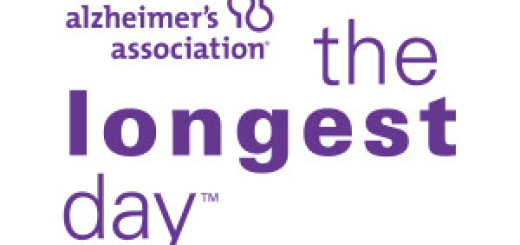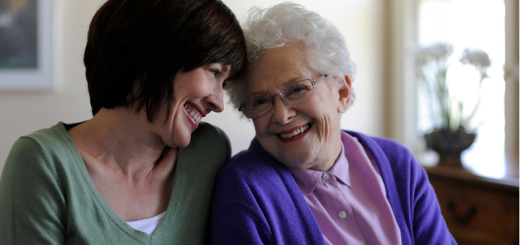Visiting the Doctor with Your Loved One
 Prior to any diagnosis of dementia or Alzheimer’s disease, you may feel that a loved one is having memory related issues or experiencing some confusion. A thorough medical and neurological evaluation will be needed for a solid diagnosis, as there could be other health reasons for the memory lapse, but going to the doctor is the first step. You may find that your loved one is resistant to the idea of a medical appointment, in which case your very first duty as a caregiver is to try and get them to go. Here are some tips on how to prepare for a pre-diagnosis doctor’s visit. It may be easier to start with your loved one’s primary care physician, whom they know and trust, to get a referral to a memory disorder specialist.
Prior to any diagnosis of dementia or Alzheimer’s disease, you may feel that a loved one is having memory related issues or experiencing some confusion. A thorough medical and neurological evaluation will be needed for a solid diagnosis, as there could be other health reasons for the memory lapse, but going to the doctor is the first step. You may find that your loved one is resistant to the idea of a medical appointment, in which case your very first duty as a caregiver is to try and get them to go. Here are some tips on how to prepare for a pre-diagnosis doctor’s visit. It may be easier to start with your loved one’s primary care physician, whom they know and trust, to get a referral to a memory disorder specialist.
After a dementia or Alzheimer’s diagnosis is made, it is important to approach medical concerns as a “partner” with your loved one versus simply “taking over” their care. Consideration should be given to your loved one’s need for decision-making autonomy unless they can truly no longer make competent decisions. You should, however, ensure you have a Durable Power of Attorney for Health Care decisions and/or a HIPAA (Health Insurance Portability and Accountability Act) waiver to allow you medical information access.
Have your loved one participate in planning for each doctor visit, including filling out an appointment log to ensure you are in synch on an appointment’s objective, what is to be reported and what questions are to be asked. If that is no longer practical, complete it yourself. If you feel the need for additional communication with the doctor, perhaps to give them a “heads-up” to a problem that your loved one may not otherwise mention (perhaps a new toileting issue or some other sensitive point), ask the doctor for their email or private fax number where you can send the information prior to the appointment. You can also try to arrange for a telephone call, should you feel the need for additional two-way communication.
Keep a caregiver’s journal to document medical history, medication management and changes you observe in both behavior (sleeping, eating, mood) and physical symptoms (pain, weight loss, confusion); remember to make this available to all on your caregiving team.
Preparing for a doctor’s visit also involves planning for the actual physical trip. As the disease progresses travel will likely get more difficult. Your loved one is likely to have a particular “best time” of the day; make appointments at that time. To reduce the stress of needing to rush, factor your loved one’s decreasing mobility into the time table in getting to appointments. Prepare for delays and emergencies by packing water, a snack and perhaps a change of clothes or other toileting items.
After each appointment, update your journal or other documentation, and ensure all of your loved one’s medical team gets frequent updates to keep everyone in synch. Provide updates to your loved one’s family and extended caregiving team on a regular basis, always asking for their thoughts and concerns. If considering new medications and/or clinical trials, ensure other family members understand the risks and potential benefits.
And remember, as a caregiver, planning is the key to everything: planning for the future, planning for everyday routines and emergencies, and planning your own care and respite. And don’t forget to plan on a few laughs now and then; it will help you and your loved one as you journey forward.
Blog written by Alzheimer’s Association Volunteer Diane Blum
Click here for more caregiver tips and expert advice from Family Care Specialist Stephanie


















Perhaps the term early diagnosis is too gerenic. What I mean when I talk about early diagnosis is. GP’s and other medical staff really listening when they are advised of behavioral changes, not being dismissive and stating that the actions are a natural part of aging, not condemning a then 39 year old to three years of being shuffled round the public medical system, when it was clear that early onset dementia was the problem.Personally as a care giver, wife and mother and responsible adult I would like to know asap to allow me to make appropriate choices about my future care, treatment options, my finances, not to put off that trip that I want to take while I am able to do so. It may lead to depression but so does not knowing and having that continuing thought at the back of your mind. Most people can handle what life deals out if they are provided with the truth in a compassionate manner and given the tools to support their understanding and deal with the issues facing them. It is not just the person who is ill that is impacted it is their entire family .Please do not assume that all people feel as indicated above and do not want to be aware of future possibilities. It should be a choice. Twenty years ago it would have been unheard of for women with a family history of breast cancer to have a breast or both breasts removed. Such a radical step was condemned. Today with appropriate medical histories investigated and counselling this step is acceptable. Perhaps the questions are too gerenic do I want to be tested by a memory nurse’ I think possibly not what are the qualifications and experience of these individuals. Would I subject myself to imaging screening or genetic testing, most definitely, would I consult a geriatrician specializing in dementia, yes. For myself I believe I have a right to know if I am at risk if there are tests out there that will give me that information. We do breast screening, bowel screening, pap testing, glaucoma testing, diabetes the list is endless. we can argue these diseases are now treatable. Yes they are, but once they were not. I am old enough to remember TB screening and the early Cancer awareness statements of Cancer is a word not a sentence. Look how far the research has advanced in these areas due to the raising of public awareness. Research has advanced because of awareness and public pressure on governments to increase funding. If Governments knew the true figures on Dementia and aging populations they would act faster. A personal opinion is that current figures are indeterminate because there is no true awareness of how many people are at risk only guesstimates
I liked that you talked about keeping a journal of all of their medical needs. My grandmother isn’t doing too well at the moment and it would be smart to write down what her doctors tell her to do. I wonder if primary care doctors can give you notes about what the checkup was about.
Thanks for the comment, Ivy. Some clinicians do provide summary documents after a visit. That is definitely something you could ask about. For anyone with a complex medical condition, it can be helpful to have someone else at the medical appointments to make sure all of your questions get answered and take notes on the responses. It’s even more important for those with Alzheimer’s, due to the short term memory loss issues.